 STORIES
STORIES
Check blogs, experiences and information related to: 'Development Goal 02: Zero Hunger'
Make a selection, to find more blogs and contributions than you see below
 | Banaan met een verhaal In mijn regionale krant BNDeStem lees ik een artikel over de Organto eerlijke banaan. Organto is bekend van het merk I AM Organic en heeft als slogan Eat the world... |
 | Pifworld - Pay It Forward Pifworld is een organisatie die mensen verbindt met non-profits en maakt het mogelijk dat iedereen mee kan werken aan een betere wereld. De wereld wordt geconfronteerd... |
 | CSRMatch - How your phone can change lives “Quality in education gives people the chance to break free from the cycle of poverty and is the key that will allow many other Sustainable Development Goals to be... |
 | Hiv, armoede, straatkinderen en … toverdokters Peter R. de Vries over de grens - In Oeganda” Kinderrechten zijn vastgelegd in internationale verdragen maar worden ze ook nageleefd? Peter R. de Vries reist in de... |
 | Een campsite en B&B met behorende hulpprojecten, in de unieke Ngara omgeving in Malawi Spoiler Alert 2024: vacatures zijn vervuld FlojaMalawi Foundation Onderwijs, gezondheidszorg en voeding Projectleider/duo/stel gezocht voor Floja Malawi Foundation Gaat... |
Make a selection, to find more tips than you see below
 | Haags Bakkie - A Cup from The Hague Nou is het zo, dat ik net bestuurslid ben geworden van de Haagse Soepbus. Echt een eer, om me weer in te gaan zetten voor mensen die zich in Den Haag bevinden en zelf... |
 | Food Charity - Empty Bowls Luncheon at Corning Incorporated HQ What does this charity do? The annual Empty Bowls Luncheon at the Corning Incorporated Headquarters is a fundraising event to raise awareness and funds for the Food Bank... |
 | Expo 2020 - SDG Conference Expo 2020 The next World Expo takes place in 2020, hosted by Dubai, United Arab Emirates. Expo 2020 will take place from October 2020-April 2021, on the theme '... |
 | Global Festival of Action The SDG Global Festival of Action The SDG Global Festival of Action is a ground-breaking event powered by the UN SDG Action Campaign with the support of the German... |
| | Internships at a Berlin Social Impact Startup You're up for something practical where you can do something good for the planet? You have an eye for order, cleanliness and system? Do you like the contact with... |
 | De Haagse Soepbus - volunteers wanted I have been volunteering for a while at the Stichting de Haagse soepbus. The advantage is that these shifts are short, self-schedulable services. You can decide with who... |
| | Volunteers needed in the field of regenerative agroforestry reNature is a Dutch initiative to make the world a little greener again. In many countries intensive and or monoculture agriculure have degraded the soil. Through... |
 | Recept: Chili con Carne Mijn wereldrecept: Chili con Carne |
 | Recipe: Left over soup My world recipe: Left over soup |
 | Inzamelingsactie voor Oegandese gezinnen Door de wereldwijde maatregelen tegen het coronavirus ligt de reisindustrie stil. In Oeganda zijn veel mensen afhankelijk van hun inkomen uit het toerisme. Het lijkt... |
Main content and contributions for activities abroad
,,,accommodations, adventure activities, courses, internships, jobs and volunteer projects
...to help another, travel with care, work together , learn
........Read more  Activities abroad: home page
Activities abroad: home page
From language courses to gap year abroad, from work experience to volunteering abroad, from paid work to internship abroad, from mountaineering to diving and from backpacking to travel around the world
What social activities can you do abroad?
- Opportunities are found in the areas of helping, learning or studying. You can get involved to volunteer in a social project at a school in Africa, Asia or Latin America. You can get involved in nature, in a project with animals or cleaning the sea or beaches. Those who want to learn more can choose for example a language course in Latin America, Spain or South Africa.
What work related activities can you do abroad?
- If you want to gain work experience, and/or also earn money, go and work abroad. You can combine backpacking in Australia with temporary work. You can work on campsites in Europe or bush camps in Africa. You can pretty much go all over the world to work in the hospitality industry, hotels and hostels, in the healthcare sector or for example at a diving school.
What sports activities to do abroad?
- Have you ever thought of mountain biking, rafting (going down a wild river on a raft or rubber dinghy, climbing or canoeing), survival (which involves building rafts, climbing or canoeing), abseiling (descending a rock face while secured to ropes), zip-lining (whizzing down a cable), canyoning (starting at the top of a river and then climbing, swimming, diving down the bed) or caving (scrambling, wriggling and crawling through caves and crevices)?
- Maybe you feel more comfortable on a bodyboard (on a half-wave surfboard, you surf the high waves lying down-with flippers), on a hang glider or while paragliding (with a parachute you float down a mountain or dune), hydrospeeding (on a bodyboard with flippers and a wetsuit on you go down a wild river via rapids) or Tiefschneeskiing (racing down through powder snow)?
Check the pages below for more activities and inspiration and where to go and how to arrange it
 Activities abroad: for gap year, sports, travel and outdoor abroad
Activities abroad: for gap year, sports, travel and outdoor abroad
Bundled content for gap year, sports, travel and outdoor abroad
 Activities abroad: for languages courses and learning a language
Activities abroad: for languages courses and learning a language
Bundled for languages courses and learning a language
 Activities abroad: for intern, volunteer and work abroad per sector
Activities abroad: for intern, volunteer and work abroad per sector
Intern, volunteer or work abroad per sector
 Study and intern abroad - bundle
Study and intern abroad - bundle
Home bundle for study and intern abroad
 Themes: home bundles per activity abroad
Themes: home bundles per activity abroad
Bundels bundles per activity abroad
 Themes: main theme pages for emigration, moving and living abroad
Themes: main theme pages for emigration, moving and living abroad
Main theme pages for emigration, moving and living abroad
 Worldsupporter: home pages and bundles
Worldsupporter: home pages and bundles
Main content en main content bundels on WorldSupporter
- 3248 reads
 ORGANIZATIONS
ORGANIZATIONS
Check or search a sector or organization related to topic: 'Development Goal 02: Zero Hunger'
No results found.
Bundled content, suggestions, stories and tips about organizations and their products and services
...to help another, travel with care, work together, learn to share and inspire with
........Read more  Organizations: home page
Organizations: home page

Organizations and institutions in the field of
- Study, internship, work and volunteering abroad
- Emigration and long-term residence abroad
- Advocacy, sustainability and global citizenship
- Personal development and knowledge sharing
 Organizations in the spotlight: home bundle
Organizations in the spotlight: home bundle
Organizations in the spotlight: home bundle
 Organizations: for administrative, tax and legal work and consulting
Organizations: for administrative, tax and legal work and consulting
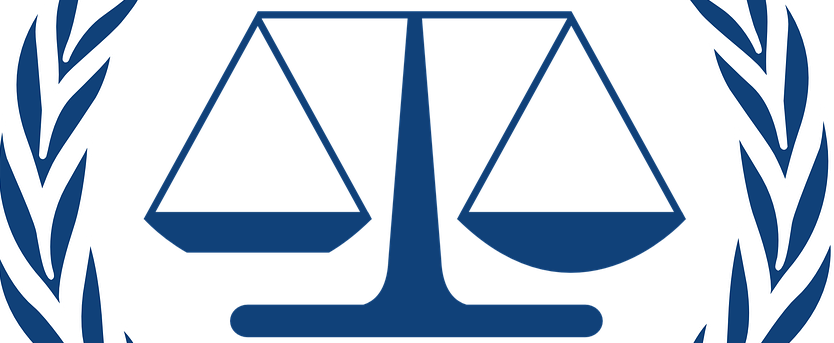
Administrative, tax and legal consulting organizations
 Organizations: for agriculture, grape picking, farming and vineyards
Organizations: for agriculture, grape picking, farming and vineyards

Organizations for agriculture, grape picking, farming and vineyards abroad
Working with livestock, harvesting crops, wine production and horticulture abroad
 Organizations: for animal protection, animal care and working with wildlife abroad
Organizations: for animal protection, animal care and working with wildlife abroad
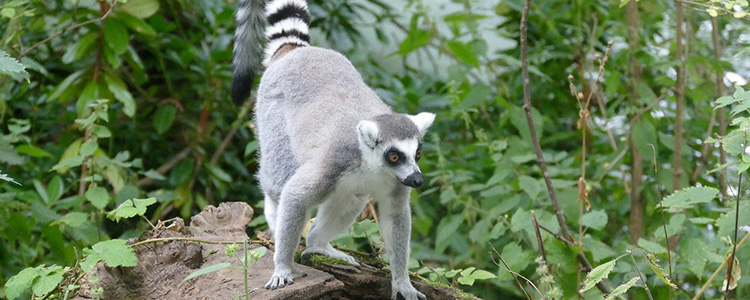
Organizations for animal protection, animal care and wildlife projects abroad
For working in animal shelters, wildlife rehabilitation centers, protecting wildlife reserves and taking care of animals abroad
 Organizations: for au pairs, youth work and child care abroad
Organizations: for au pairs, youth work and child care abroad

Organizations for au pairs, youth work and child care abroad
 Organizations: for bush camping and working at a campsite abroad
Organizations: for bush camping and working at a campsite abroad
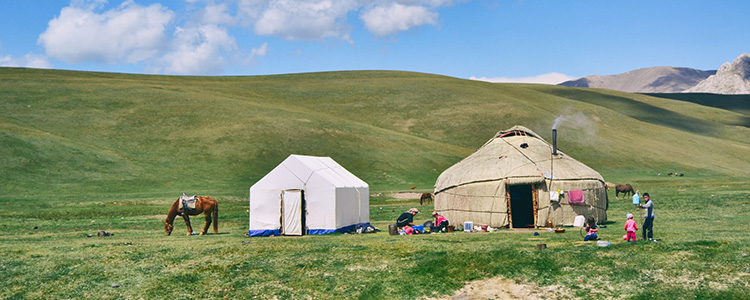
Organizations: for bush camping and working at a safari camp or campsite abroad
 Organizations: for catering, hospitality and entertainment abroad
Organizations: for catering, hospitality and entertainment abroad

Organizations for catering, entertainment and animation abroad
 Organizations: for civil society and social work abroad
Organizations: for civil society and social work abroad

Community service, social work and advocacy organizations
 Organizations: for corporate business services
Organizations: for corporate business services

Sector: corporate business services organizations
 Organizations: for customer services abroad and help desks
Organizations: for customer services abroad and help desks

Organizations with international customer services, organizations with international help desks and recruitment organizations for call centers and customer services
 Organizations: for diving, snorkeling and water sports abroad
Organizations: for diving, snorkeling and water sports abroad
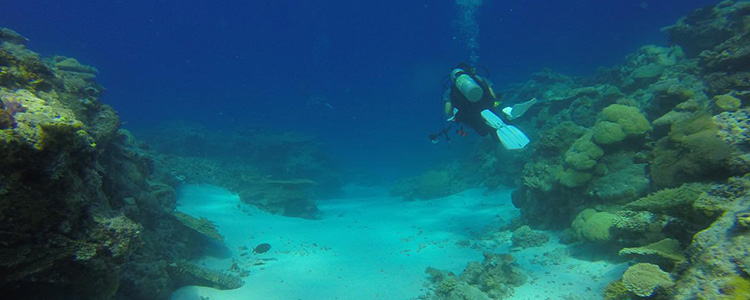
Diving schools and Snorkeling tour operators and organizations for water sports abroad
 Organizations: for education and schools abroad
Organizations: for education and schools abroad

Schools and educational institutions abroad
where you can work as a teacher, learn as an intern, or make yourself useful as a volunteer
 Organizations: for expatriate insurances, travel insurances, and emergency call centers
Organizations: for expatriate insurances, travel insurances, and emergency call centers

Organizations: for expatriate insurances, travel insurances, and emergency call centers
 Organizations: for gap year activities abroad and sabbaticals
Organizations: for gap year activities abroad and sabbaticals

Organizations to fill and organize a gap year, gap year or sabbatical: coaches, consulting organizations, program providers and mediators
 Organizations: for internship placement abroad
Organizations: for internship placement abroad

Organizations that mediate in internships abroad, in accommodation during your internship and organizations that can help find graduate internships
 Organizations: for insurances and finance abroad
Organizations: for insurances and finance abroad

Organizations: insurance and finance abroad
 Organizations: for IT, engineering and construction
Organizations: for IT, engineering and construction

IT, webdevelopment, engineering and construction organizations
 Organizations: for language travel and language teaching abroad
Organizations: for language travel and language teaching abroad

Language travel organizations, language institutes and language mediation organizations,
for Chinese, English, French, Italian, Dutch, Spanish, Swahili or other languages
 Organizations: for marketing, communication and PR
Organizations: for marketing, communication and PR

Organizations for marketing, communication and PR
 Organizations: for mediation in au pairs, childcare and elderly care in the Netherlands
Organizations: for mediation in au pairs, childcare and elderly care in the Netherlands

Organizations for mediation in au pairs, childcare and elderly care in the Netherlands
 Organizations: for moving, international relocation and transport abroad
Organizations: for moving, international relocation and transport abroad

Organizations: for international moving, relocation services and transport abroad
 Organizations: for nature conservation, environmental protection and working in nature abroad
Organizations: for nature conservation, environmental protection and working in nature abroad

Organizations for environmental protection, sustainability, nature conservation and working outdoors in nature abroad
 Organizations: for nonprofit projects, development work and international cooperation
Organizations: for nonprofit projects, development work and international cooperation

Organizations for nonprofit projects, development work and international cooperation
 Organizations: for online work as digital nomad, freelancer, or independent entrepreneur from abroad
Organizations: for online work as digital nomad, freelancer, or independent entrepreneur from abroad

Working as digital nomad, freelancer, or independent entrepreneur from abroad
Including: travel bloggers, influencers, travel websites and digital nomads who provide web services from abroad
 Organizations: for outdoor activities and sports
Organizations: for outdoor activities and sports

Organizations for outdoor activities, sports and exercise abroad
 Organizations: for paid employment abroad and international recruitment
Organizations: for paid employment abroad and international recruitment

International recruitment and organizations for paid employment abroad
Employment agencies and activity placement abroad
- Gap Year agencies and sabbatical advice abroad
- Internships agencies and placement abroad
- Paid work agencies and placement abroad
- Recruitment agencies and temporary work abroad
- Voluntary work agencies and placement abroad
- Working holiday agencies and placement
 Organizations: for providing accommodation and hospitality work in hotels, guesthouses, ecolodges and hostels abroad
Organizations: for providing accommodation and hospitality work in hotels, guesthouses, ecolodges and hostels abroad

Organizations: for providing accommodation and hospitality work in hotels, resorts, guesthouses, ecolodges, bed and breakfasts and hostels abroad
 Organizations: for providing healthcare and working in medical care abroad
Organizations: for providing healthcare and working in medical care abroad

Care organizations and intermediary organizations for paid work, volunteering and internships in health care abroad
 Organizations: for psychological assistance and mental health care abroad
Organizations: for psychological assistance and mental health care abroad

Organizations: for psychological assistance, coaching and mental health care abroad
 Organizations: for real estate, brokerage abroad and property rental abroad
Organizations: for real estate, brokerage abroad and property rental abroad

Organizations for real estate, brokerage abroad and property rental abroad
 Organizations: for research and scientific work abroad
Organizations: for research and scientific work abroad

Organizations: for research, R&D, data collection, data analysis and scientific work abroad
 Organizations: for student support and student associations
Organizations: for student support and student associations

Organizations for student support and student associations
Organizations for tutoring and rehearsal classes
 Organizations: for tour guidance and adventure tours abroad
Organizations: for tour guidance and adventure tours abroad

Adventure tour operators, sustainable tour operators, and group tour organizers
 Organizations: for tourism and organized travel and leisure work abroad
Organizations: for tourism and organized travel and leisure work abroad

Leisure and tourism organizations and working in the field of organized travel and tourist activities
 Organizations: for voluntary work mediation and project placement abroad
Organizations: for voluntary work mediation and project placement abroad

Intermediaries for volunteering abroad, and organizations that could make good use of volunteers!
- Project organizations that work with volunteers
- Sustainable and low budget organizations that work a lot with volunteers
- Mediators for volunteer work abroad
 Organizations: for yacht and shipping crew and working on a cruise ship abroad
Organizations: for yacht and shipping crew and working on a cruise ship abroad
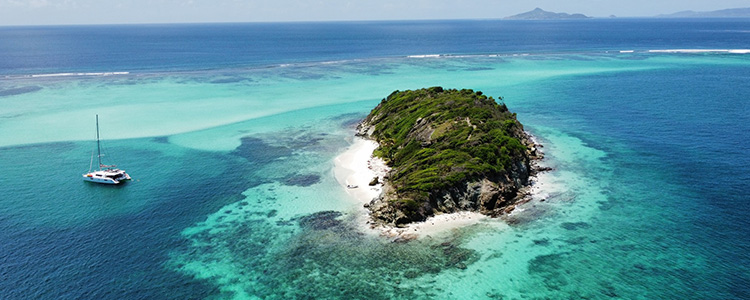
Organizations and intermediaries in crew for cruise ships, sailing yachts and other ships & Shipping organizations
- 1900 reads
 SUMMARIES
SUMMARIES
check or search summaries, tests and study assistance within topic: 'Development Goal 02: Zero Hunger'
No results found.
Ik lees een interessant artikel over het initiatief van David Katz, een ontwikkelingsondernemer uit Canada die de Plastic Bank heeft opgezet. Plastic wordt tegen een eerlijke prijs ingekocht bij verzamelers in ontwikkelingslanden, vervolgens verscheept naar westerse landen, die het recyclen voor ind...
Ik las deze week een klein artikel over het afscheid van een directeur, Luitzen Wobma, van 'zijn' particulier initiatief Tools To Work. Een kleine stichting met een 'werkplaats voor de derde wereld', uitgegroeid tot internationaal kennisinstituut. Een ngo die mensen zowel in Afrika als Nederland hel...
The main WorldSupporter goals in short:
- Improvement of world tolerance
- Stimulating activities abroad to improve tolerance and the ability to cooperate
- Understanding another person and culture
- Stimulating personal development around and abroad
- ...
reNature is a Dutch initiative to make the world a little greener again. In many countries intensive and or monoculture agriculure have degraded the soil. Through training of farmers and local organisations reNature tries to change the way farmers use their land. Agroforestry is their solution. By p...
In mijn regionale krant BNDeStem lees ik een artikel over de Organto eerlijke banaan. Organto is bekend van het merk I AM Organic en heeft als slogan Eat the world better. Je vindt producten o.a. in de shops en kiosken van NS. Vaak denk ik bij dergelijke merken en slogans 'tja, de zoveelst...
- Development Goal 01: No Poverty
- Development Goal 03: Good Health and Well-Being for People
- Development Goal 04: Quality Education
- Development Goal 05: Gender Equality
- Development Goal 06: Clean Water and Sanitation
- Development Goal 07: Affordable and Clean Energy
- Development Goal 08: Decent Work and Economic Growth
- Development Goal 09: Industry, Innovation, and Infrastructure
- Development Goal 10: Reducing Inequalities
- Development Goal 11: Sustainable Cities and Communities
- Development Goal 12: Responsible Consumption and Production
- Development Goal 13: Climate Action
- Development Goal 14: Life Below Water
- Development Goal 15: Life on Land
- Development Goal 16: Peace, Justice and Strong Institutions
- Development Goal 17: Partnerships for the Goals
- For checking destinations related to Development Goal 02: Zero Hunger: you can check the World or backpacking and travel around the world
- For stimulating sustainability related to Development Goal 02: Zero Hunger: you can check the Sustainable Development Goals or sustainable travel and fair adventures
- For sharing knowledge related to Development Goal 02: Zero Hunger: you can check the use of summaries and study notes
- For choosing international insurances related to Development Goal 02: Zero Hunger: you can check insurances for abroad
- For checking volunteerships related to Development Goal 02: Zero Hunger you can also use volunteer, project support and opportunities
- For finding work as employee or digital nomad related to Development Goal 02: Zero Hunger you can check also jobs and materials for teaching abroad or content for digital nomads, global worker and work & travel
- For living abroad you can check also use the checklists for global nomads, expats and other people moving abroad
















